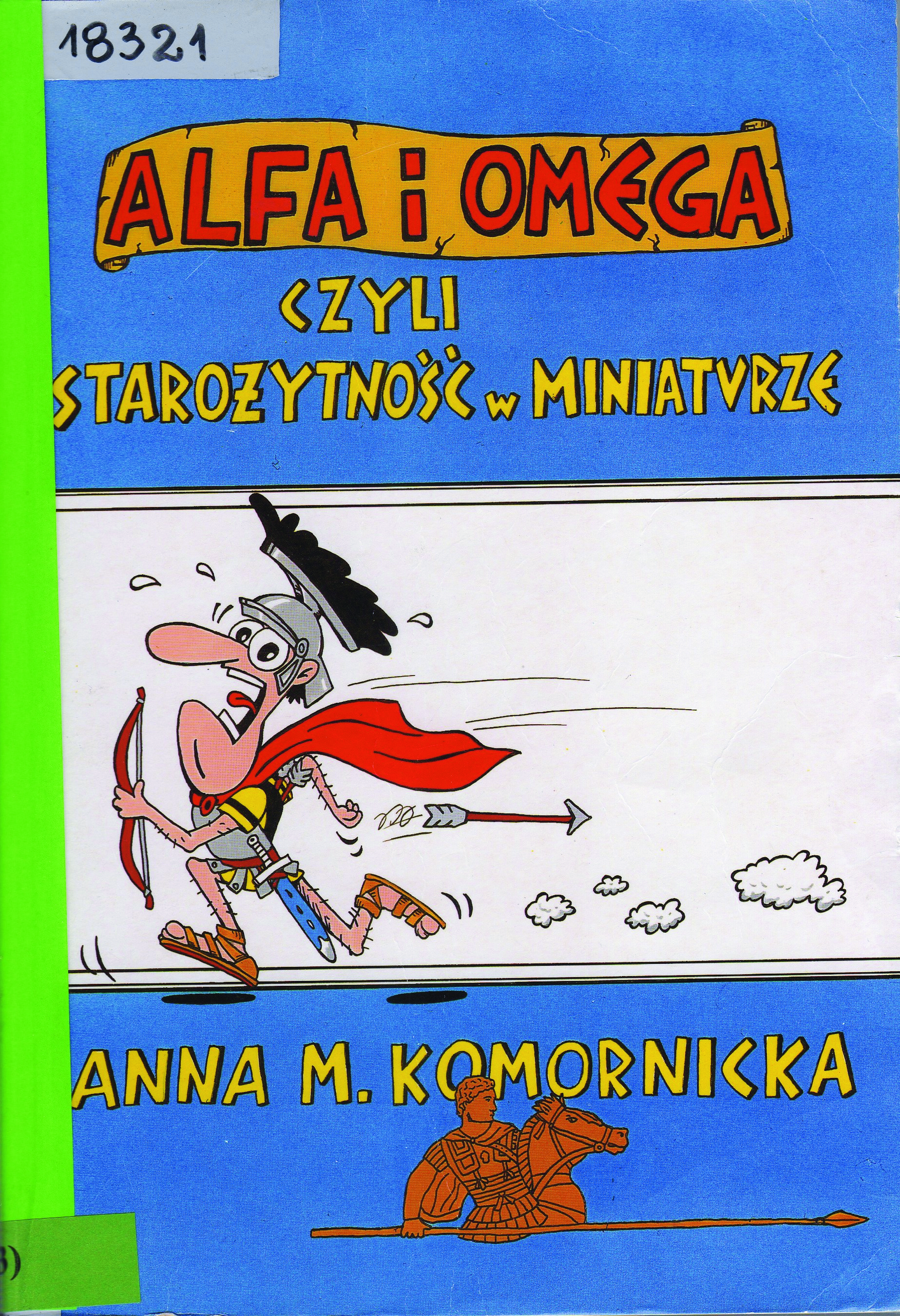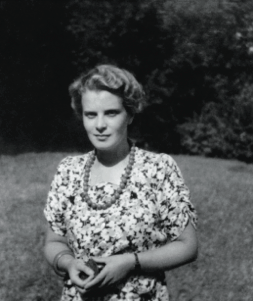Title of the work
Country of the First Edition
Country/countries of popularity
Original Language
First Edition Date
First Edition Details
Anna M. Komornicka, Alfa i Omega, czyli starożytność w miniaturze, ill. Mirosław Andrzejewski. Warszawa: Oficyna Wydawnicza Ostoja, 1995, 175 pp.
ISBN
Genre
Glossary
Target Audience
Children
Cover

Courtesy of the publisher.
Author of the Entry:
Olga Grabarek, University of Warsaw, olga.grabarek@student.uw.edu.pl
Peer-reviewer of the Entry:
Katarzyna Marciniak, University of Warsaw, kamar@al.uw.edu.pl
Elżbieta Olechowska, University of Warsaw, elzbieta.olechowska@gmail.com

Photograph courtesy of the Author.
Anna M. Komornicka
, 1920 - 2018
(Author)
Classical philologist, specialized in Greek comedy and archaic lyric poetry; her research covered also texts of the Greek Fathers, reception of the Bible, genesis and evolution of concepts in ancient literature; translator of Greek and Roman, as well as contemporary literature into Polish; Editor-in-Chief of the classical journal “Meander”; author of books and radio-plays inspired by Antiquity for children and adolescents. Honorary Member of the Scientific Committee on Ancient Culture of the Polish Academy of Sciences (KNoKA PAN).
Sources:
Jadwiga Czerwińska, “Profesor Anna Maria Komornicka, nasz mistrz”, Meander 63 (2008): 4–14 (accessed: June 11, 2021).
Anna M. Komornicka, “Anna M. Komornicka: Listy do Meandra”, Meander 74 (2019): 179–201 (accessed: March 29, 2021).
Jan Komornicki, “Pożegnanie Cioci Anny z Wolańskich Komornickiej (27 września 1920 – 17 grudnia 2018)”, Meander 74 (2019): 3–8 (accessed: June 11, 2021).
Bio prepared by Elżbieta Olechowska, University of Warsaw, elzbieta.olechowska@gmail.com
Sequels, Prequels and Spin-offs
Anna M. Komornicka, Historie nie z tej ziemi, Warszawa: Wydawnictwa Radia i Telewizji, 1987, 165 pp.
Anna M. Komornicka, Nić Ariadny, czyli po nitce do kłębka, Warszawa: Wydawnictwa Radia i Telewizji, 1989, 164 pp.
Summary
Based on: Katarzyna Marciniak, Elżbieta Olechowska, Joanna Kłos, Michał Kucharski (eds.), Polish Literature for Children & Young Adults Inspired by Classical Antiquity: A Catalogue (accessed: June 11, 2021), Faculty of “Artes Liberales”, Warsaw: University of Warsaw, 2013, 444 pp.
This is the last volume in the series The Legacy of Antiquity, where the author explains the classical origin of well-known expressions used by famous Greek and Roman leaders, philosophers etc., such as “the die has been cast,” “money does not stink,” or “everything flows.” Other words and expressions, such as “Olympics,” “Spartan upbringing,” originate from cultural traditions and customs of the Antiquity. Phrases related to historical events or figures constitute still another category, e.g. “Pyrrhic victory.” Each explanation follows a similar pattern: the author presents first historical origins of the expression, and then its contemporary usage. The first phrase is “Alpha and Omega.” The author discusses letters of the Greek alphabet and how it was taught in Antiquity according to Quintilian. The meaning and modern usage of each entry is illustrated in a dramatized scene with three characters, young siblings, Krzyś, Stefanek and Elka. This innovative manner of closing the gap between the far away Antiquity and our times seems particularly effective.
Analysis
The book includes famous phrases, e.g. “everything flows,” “the die has been cast,” “veni, vidi, vici,” “history is the teacher of life,” “bread and games,” “You have conquered, o Galilean”; expressions related to ancient history, e.g. “Draconian laws,” “to deliver a philippic”; origins of words, e.g. tyrant, patron, patronage; stereotyped expressions e.g. “the eighth wonder of the world,” “rich as Croesus.” The author explains in a clear way where such expressions come from and what they mean, often quoting ancient historians and famous scholars. The dramatized scenes demonstrate how the classical phrases function in modern language.
Further Reading
Czerwińska, Jadwiga, “Z Grzymałowa w świat antyku”, Cracovia Leopolis 43 (2005): 2–5, 51 (accessed: April 8, 2022).


